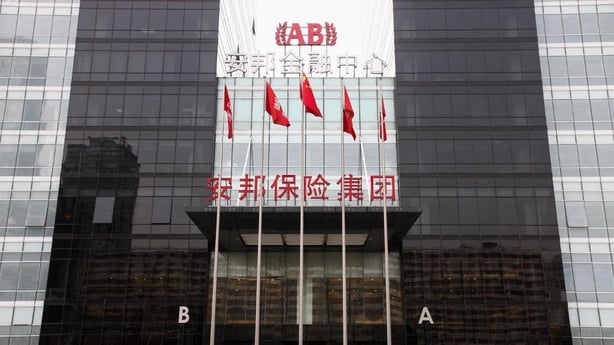China's Anbang Insurance Group has said it has abandoned its $14bn (€12.3bn) bid for Starwood Hotels & Resorts Worldwide, paving the way for Marriott International to buy the Sheraton and Westin hotels operator.
The surprise withdrawal marks an anticlimactic end to a bidding war that had pitted Marriott's ambitions to create the world's largest lodging company, with about 5,700 hotels, against Anbang's drive to create a vast portfolio of US real estate assets.
It also represents a blow to corporate China's growing ambitions to acquire US assets.
Anbang's acquisition of Starwood would have been the largest takeover of a US company by a Chinese buyer.
"We were attracted to the opportunity presented by Starwood because of its high-quality, leading global hotel brands, which met many of our acquisition criteria, including the ability to generate consistent, long-term returns over time," Anbang said in a statement.
"However, due to various market considerations, the consortium has determined not to proceed further," Anbang added, referring to the joint bid it had put together with private equity firms JC Flowers & Co and Primavera Capital.
Anbang did not offer Starwood a reason for not following through on its raised offer of 26 March, according to people familiar with the matter.
They asked not to be identified disclosing confidential discussions.

"The reason of withdrawal is simple - Anbang isn't interested in a protracted bidding war," Fred Hu, Chairman of Primavera, told Reuters news agency in an email statement.
It was not immediately clear if Marriott had made a counter bid to Anbang's 26 March offer.
Starwood said on Monday that Anbang had raised its offer to almost $14bn.
Anbang had been expected to firm up that non-binding offer, so that Starwood would formally declare it superior to Marriott's.
Anbang had already made a $13.2bn binding and fully financed offer earlier this month, which Starwood accepted as superior.
Had Marriott not counter bid on 21 March, Starwood would have proceeded with the earlier Anbang offer.
Starwood also said in a statement yesterday that Anbang had withdrawn its offer "as a result of market considerations, "which it did not specify. Marriott declined to provide immediate comment.
The move fuelled speculation on what drove Anbang to change course, especially given that many Chinese overseas acquisitions have been encouraged by the country's authorities.
Chinese financial magazine Caixin reported earlier this month that China's insurance regulator would likely reject a bid by Anbang to buy Starwood, since it would put the insurer's offshore assets above a 15% threshold for overseas investments.
Should Anbang have clinched an agreement with Starwood, it would have been scrutinised by the Committee on Foreign Investment in the United States (CFIUS), an inter-agency panel that reviews deals to ensure they do not harm national security.
However, sources had said that both Starwood and Anbang believed the deal would have received CFIUS clearance.

